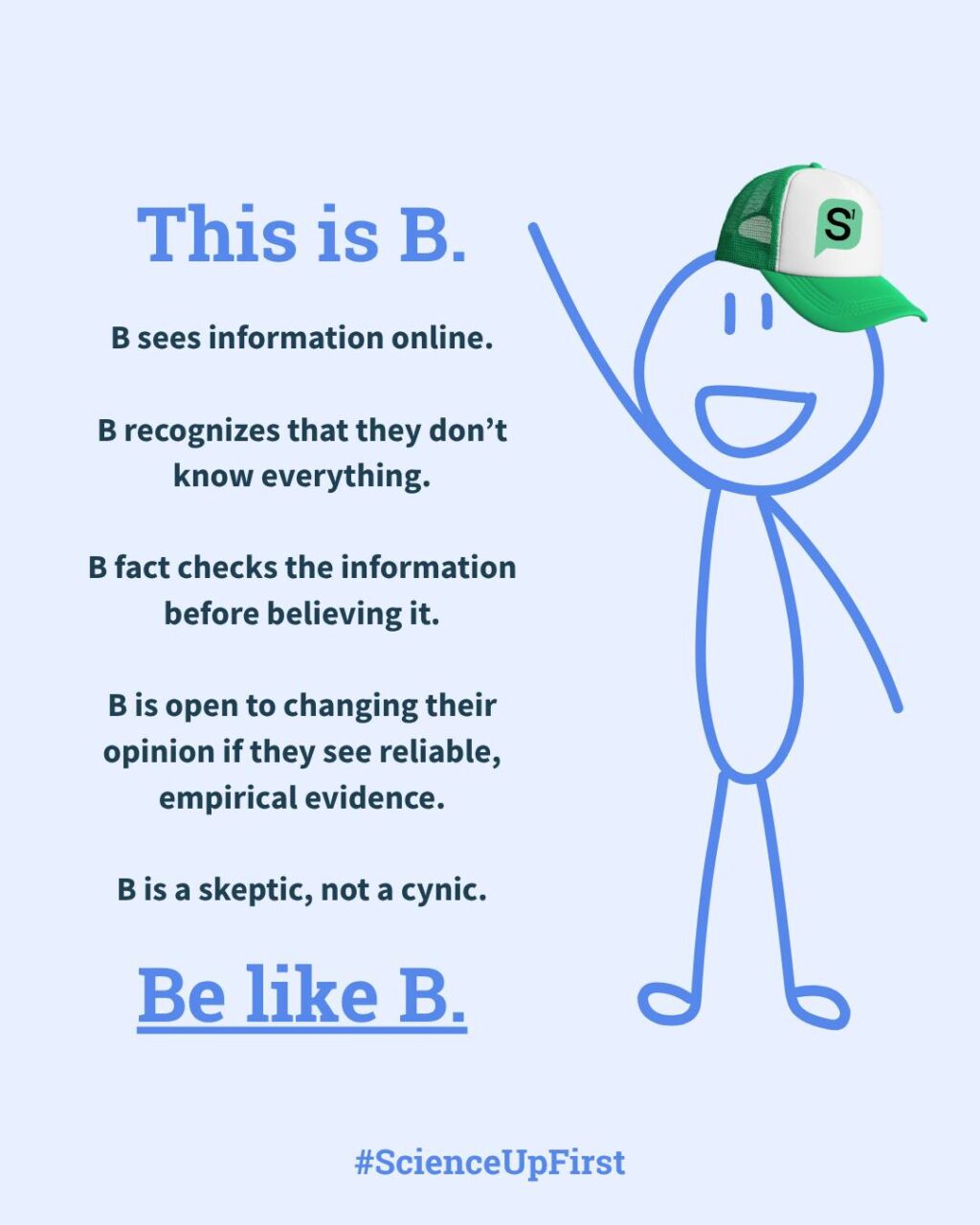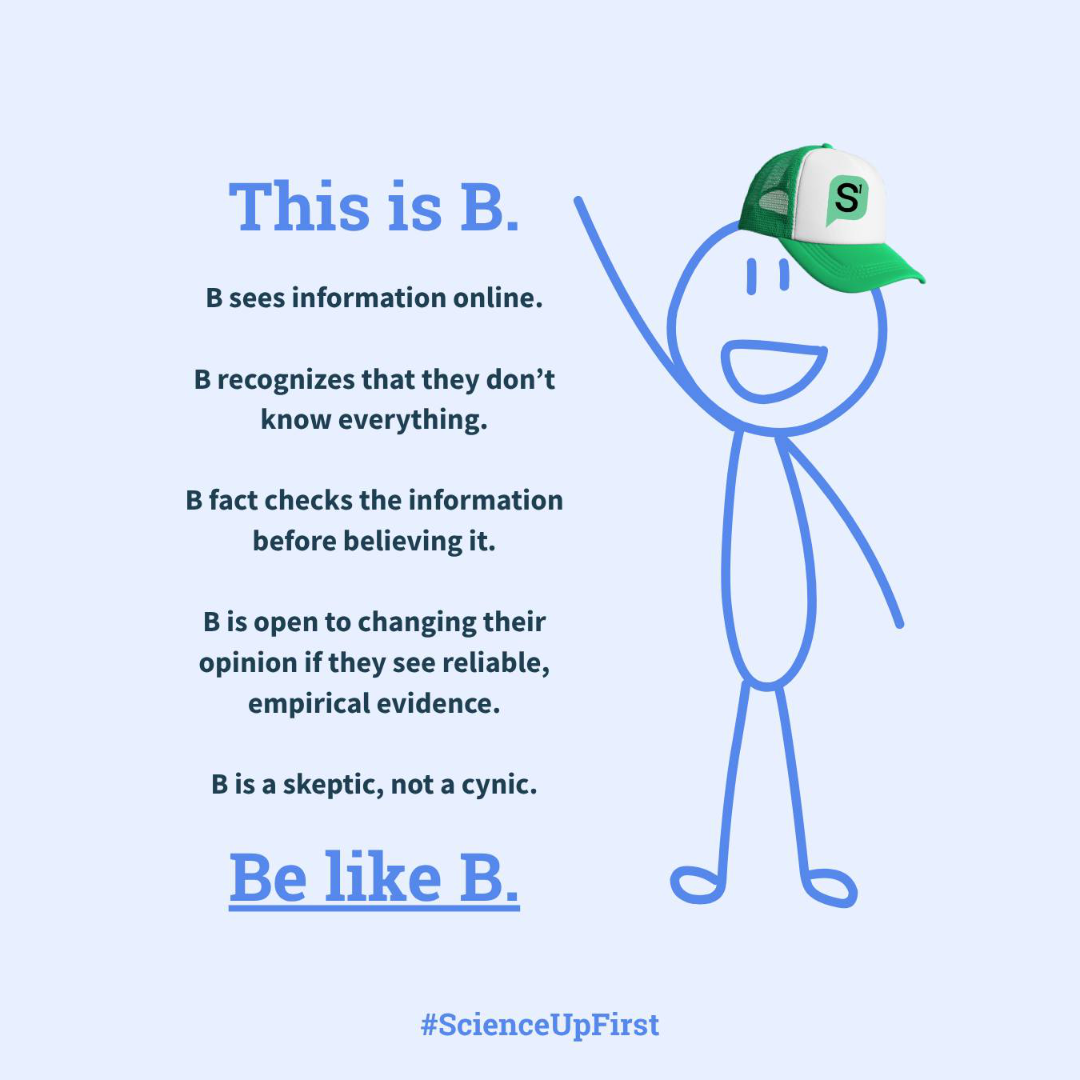
When you see a claim online, how do you process it? Do you believe everything you see? Or nothing? 🤔
Many people nowadays are cynical, meaning that they assume the worst of other people (1-4). Globally, trust in media, institutions, and fellow citizens is quite low (4-6). In Canada, only 33% believe that ‘most people can be trusted’ (7)! People who are cynical are more likely to dismiss information from media and institutions without evaluating the claim, because they assume the author is untrustworthy (2,8,9). This can actually make cynical people MORE likely to believe misinformation and conspiracy theories, which often criticize experts and people in power without evidence, appealing to a cynical perspective (10).
Of course, you can’t just believe everything you see online! Naïve trust means falling for scams, believing harmful misinformation, and being unable to determine which conflicting information is true (8,9).
The happy medium is to be skeptical. Skeptics question the claims they see and investigate them (1,2,4,8-11). They will not believe without proof, and can question their own assumptions, but will accept a fact or change their mind when provided with solid evidence (1,3). This level of questioning is healthy for democracy, can improve trust in media and confidence in other institutions, and can help skeptics be better informed and less likely to fall for false information and scams (3,8,9,11,12).
Explore our other posts for tips on fact checking, spotting misinformation, and developing your science and media literacy. 🔍
Feeling skeptical? Check out our sources!
- Instead of Being Cynical, Try Becoming Skeptical | Behavioral Scientist | 7 October 2024
- How is skepticism different than cynicism? Find the answer in ancient Greece | Columbia Journalism Review | 15 October 2018
- Are You a Skeptic or a Cynic? | Psychology Today | 10 January 2025
- How Hopeful Skepticism Rather Than Cynicism Can Make A Big Difference | Forbes | 5 September 2024
- 30% of adults say most people can be trusted | Ipsos | 24 March 2022
- Trust and Distrust in America | Pew Research Center | 22 July 2019
- Only One-Third Of Canadians Believe Most People Can Be Trusted | Ipsos | 24 March 2022
- Constructive Skepticism, Dysfunctional Cynicism? Skepticism and Cynicism Differently Determine Generalized Media Trust | International Journal of Communication | 2021
- Media Cynicism, Media Skepticism and Automatic Media Trust: Explicating Their Connection with News Processing and Exposure | Communication Research | 25 March 2025
- Skepticism, cynicism, and cognitive style predictors of the generality of unsubstantiated belief | Applied Cognitive Psychology | 19 November 2021
- How Skepticism (not Cynicism) Can Raise Scientific Standards and Reform the Health and Wellness Industry | Human Kinetics Journals | 2023
- Confidence in institutions and the media, 2023 | Statistics Canada | February 13 2024
Share our original Bluesky Post!
Do you believe everything you see online or nothing at all? – Cynicism makes you dismiss information without evaluating it. – Naivety makes you believe everything. The solution: informed skepticism 💡 More info and resources here 👇 scienceupfirst.com/misinformati… #ScienceUpFirst
— ScienceUpFirst (@scienceupfirst.bsky.social) July 16, 2025 at 1:15 PM
[image or embed]
View our original Instagram Post!




